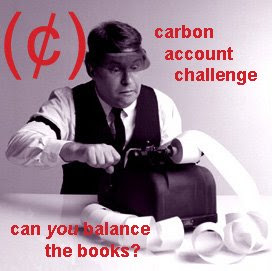Reducing the Amount of Beef we Eat
I grew up in upstate New York where we raised our own pigs, had chickens and grew and canned all our own vegetables. In the fall, Mom would take us girls school shopping while Dad and my Uncle would butcher a couple of pigs to give us pork for the winter. Friends of mine had mini-farms too, raising such various animals as emus, bunnies, guinea hens and yes, beef cattle. In fact, it was not unusual for families to buy "half a heifer" to stock their freezers with fresh, local beef.
Now if that were the way we got our beef today, I probably wouldn't have such a problem with it. However, things have changed and we are in Suburbia-land now and I don't really have access to any cows here(or half-cows, for that matter). Our beef most likely comes from a factory farm in God-knows-where, and is injected with all sorts of antibiotics and hormones. If that's not enough to turn you off, go ahead and read this article, published by earthsave.org, or this one, published by the University of Pennsylvania. They are one of many pieces I've read about how our food choices can have giant detrimental effects on the environment. Let me share some of what I've learned with you:
- Ten people could be fed with the grain that you would feed a cow that would be turned into food for one person
- Each pound of steak from feedlot-raised steers that you eat comes at the cost of 5 pounds of grain, 2,500 gallons of water, the energy equivalent of a gallon of gasoline, and about twenty-five pounds of eroded topsoil
- Over 30% of North American land is devoted to grazing
- Over 50% of America's cropland is dedicated to growing feed for livestock
- The livestock industry consumes over half of the water used in the US
- Livestock produces 130 times the amount of waste that people do
- Every second of every day, one football field of tropical rain forest is destroyed in order to produce 257 hamburgers
- Cattle produce almost one fifth of global methane emissions
Now don't get me wrong here, folks. Burbanmom LOVES to splurge on a nice, juicy porterhouse now and again. Hey, I'm a carnivore from way back. But the thing is -- and this is a hard concept for us Americans to grasp -- we need to eat beef in moderation. It may not cost a lot of money, but it does have a huge, detrimental impact on our environment. So let's lay off the burgers, folks and give the steaks a rest. If and when you do buy beef, make sure it's from a sustainable source (preferably local) and NOT from a factory farm.
My family started laying off the red meats four years ago, when my husband was diagnosed with high cholesterol, but lately we've been eating more and more of it. Today is the day we stop. I now declare our household nearly beef-free. I have two steaks in the freezer that I'll need to use up (no sense wasting them) and I think I'll allow for one beef dish every other month.
Savings:
Let's see here, at four ounces per serving, that's three pounds of beef we'll be eating each year. Compare that to our previous consumption level of one beef serving each per week and that's a savings of 26 pounds of beef per year. According to the stats I found, we're saving 130 pounds of grain, 65,000 gallons of water, the energy equivalent of 26 gallons of gasoline, and 650 pounds of eroded topsoil. Damn, folks, that's about six times more water than I'm saving with the new washer!
Difficulty Level: 1 out of 5
As I mentioned, we've sworn off beef before and it wasn't that difficult to do. There are a number of easy substitutions including turkey, chicken, tofu, beans, veggies and TVP. Play around with them or search for recipes online. I promise you, no one will know you dropped the real beef from your chili -- although that has it's own methane issues, if you know what I mean.









No comments:
Post a Comment